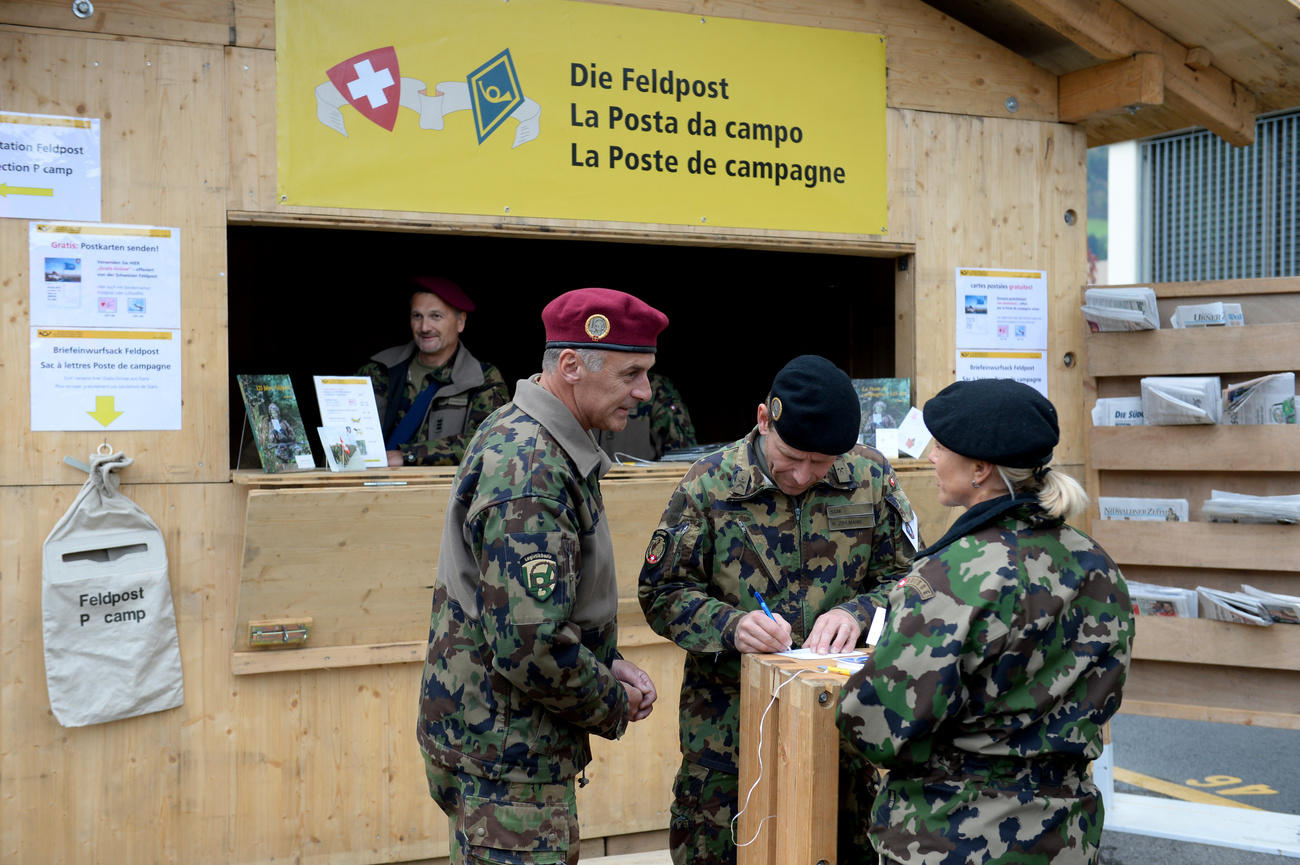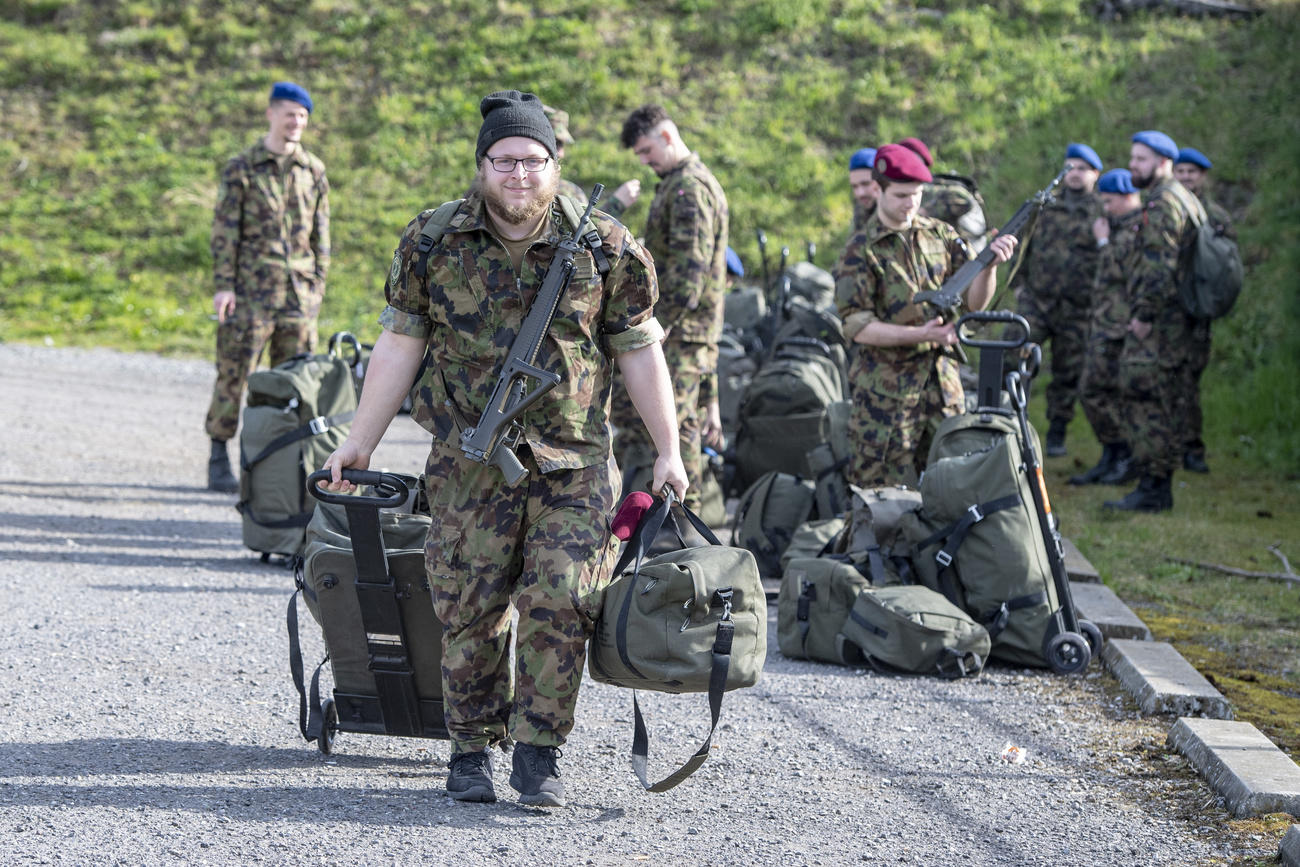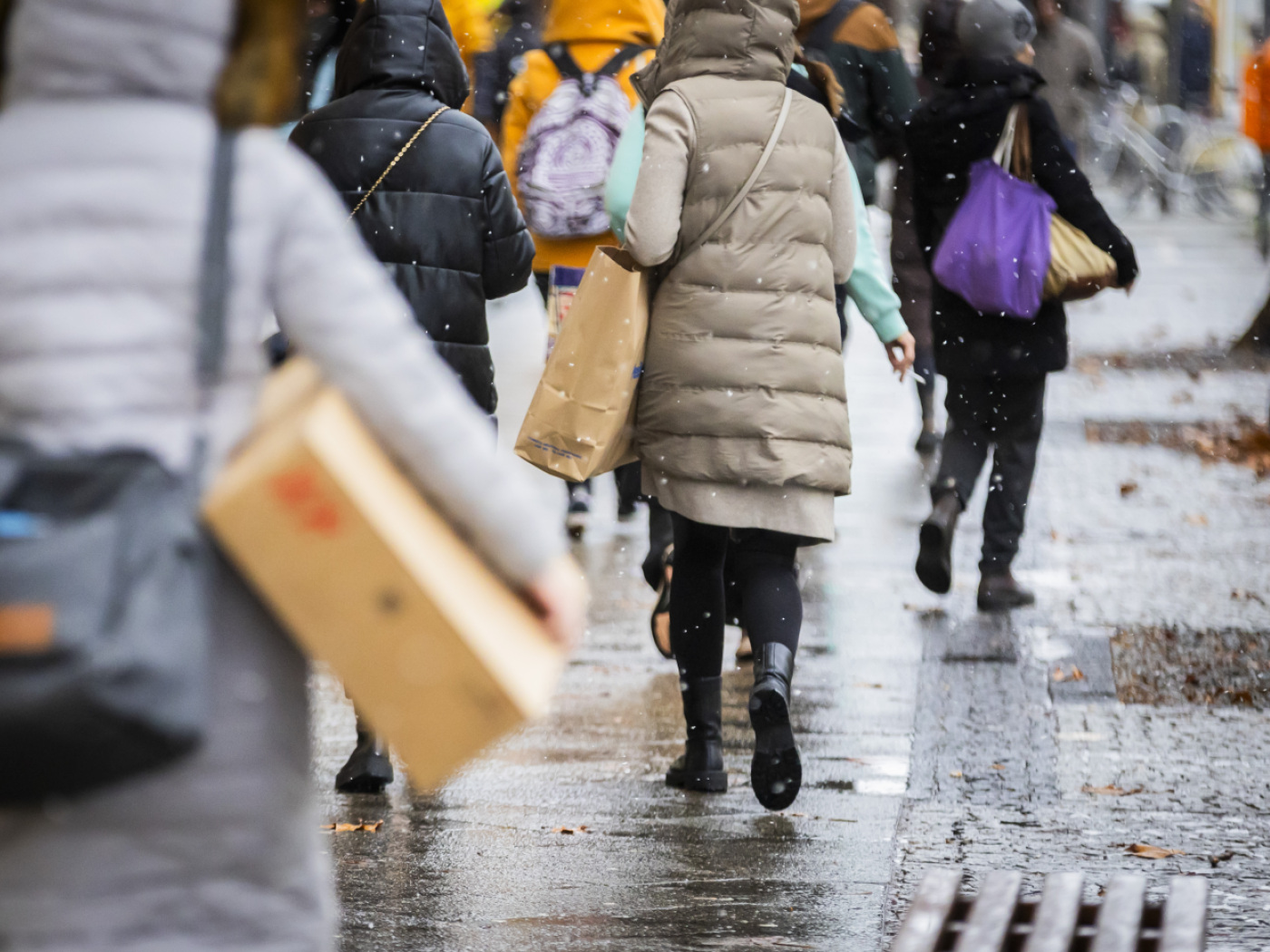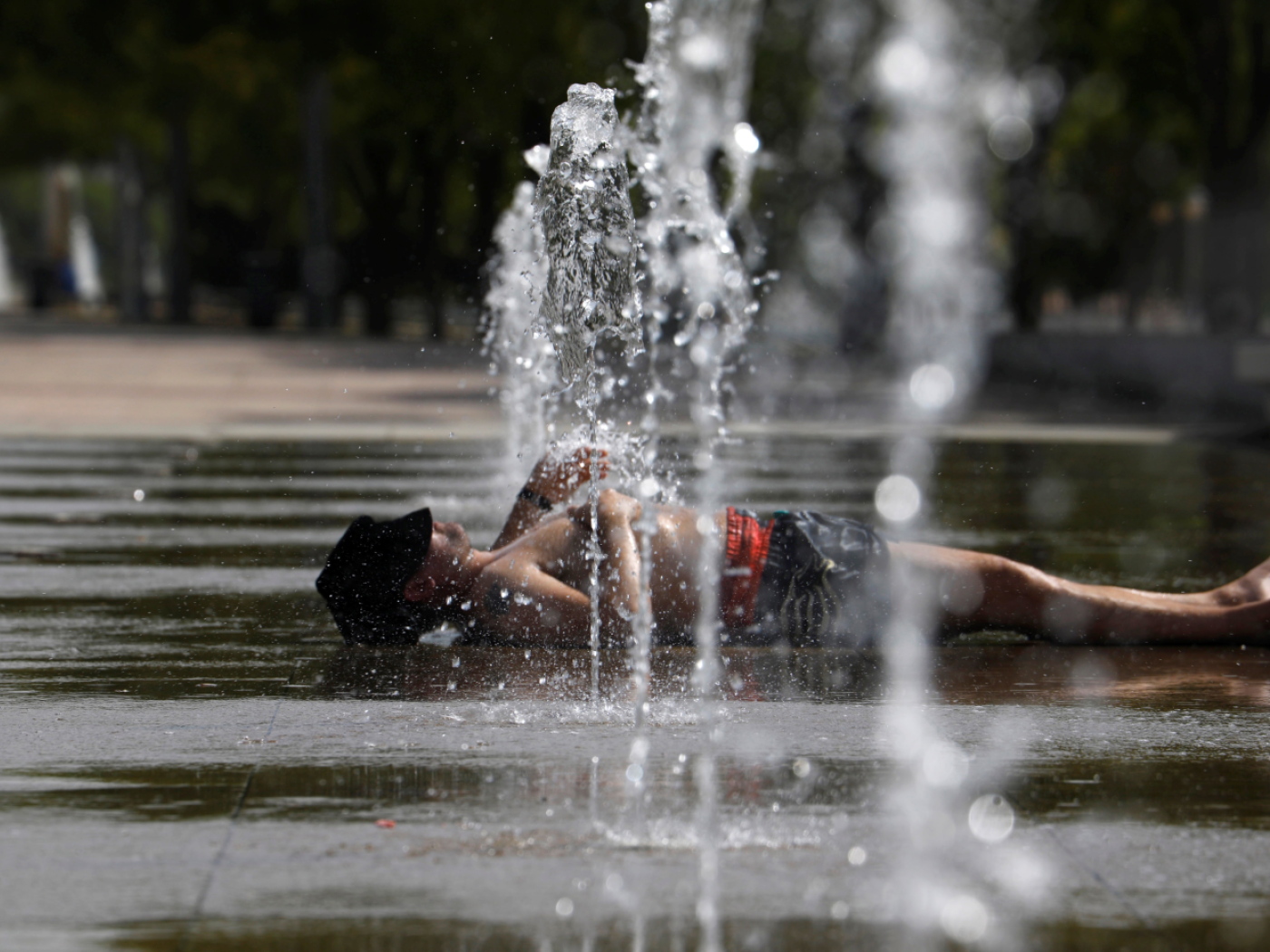Dirty laundry stretches Army Postal Service to the limit

The mobilisation of the Swiss army to cope with the coronavirus pandemic has resulted in “more work than ever” for the army’s postmen and postwomen.

More
Swiss militia soldiers get historic call up to fight coronavirus
Instead of the usual 1,000 parcels a day, they are processing more than 8,000 – on top of mountains of laundry.
“We’re noticing a massive increase in shipments – especially of laundry bags,” said Fritz Affolter, the army’s top postman. He added that the service was reaching its limit.
Soldiers and officers taking part in the historic call-up are not allowed to go home for at least three weeks. This means they are having to send their dirty clothes home to be washed.
For the 15,000 or so army personnel currently on duty, 80 members of the Army Postal ServiceExternal link are deployed throughout Switzerland, working in 28 army post offices.
The Army Postal Service has existed in Switzerland for 131 years. It is a unit of the Swiss Post and is part of the army’s logistics organisation.
It delivers private letters and parcels to army personnel up to a maximum weight of five kilos free of charge. Care packages from relatives are also keep the postal workers busy.
Time line
· February 25: Switzerland reports its first coronavirus case – a 70-year-old man tests positive in canton Ticino, in the south of the country bordering Italy. Ticino bans all public events, including the carnival parades.
· February 27: “Social distancing” is one of the precautions called for as part of an information campaign by the Federal Office of Public Health. The Engadin Ski Marathon – scheduled for March 8 – is cancelled. The Swiss sporting scene starts shutting down.
· February 28: The government raises the alert level to “special situation” – banning events with more than 1,000 people, including football and ice hockey championships, carnivals in Basel and Lucerne, the Geneva Motor Show and Baselworld watch fair.
· March 5: A 74-year-old woman dies in Lausanne. She is the first confirmed coronavirus death in Switzerland.
· March 13: Ticino is the first canton to close all schools as part of its “emergency measures”. The federal government launches an emergency aid package worth CHF10 billion ($10.3 billion) and bans public gatherings of more than 100 people.
· March 16: The Swiss government declares an “extraordinary situation”, instituting a ban on all private and public events and closing restaurants, bars, leisure facilities and shops apart from grocery stores and pharmacies.
· March 19: Canton Uri orders people 65 and older to stay inside their homes. The federal government tells the canton it can’t do that.
· March 20: The government announces a nationwide ban on gatherings of more than five people in public spaces. It urges the public to stay home except to buy food or go to the doctor. Some city parks are shut and police begin enforcing the ban on groups of 5+.
· March 21: The foreign ministry announces special charter flights for hundreds of Swiss citizens stranded in South America and Africa.
· March 22: Canton Ticino orders manufacturing plants to shut down, though cantons have been warned not to unilaterally exceed the recommendations of the federal authorities.

More
Coronavirus: the situation in Switzerland

In compliance with the JTI standards
More: SWI swissinfo.ch certified by the Journalism Trust Initiative





















You can find an overview of ongoing debates with our journalists here . Please join us!
If you want to start a conversation about a topic raised in this article or want to report factual errors, email us at english@swissinfo.ch.